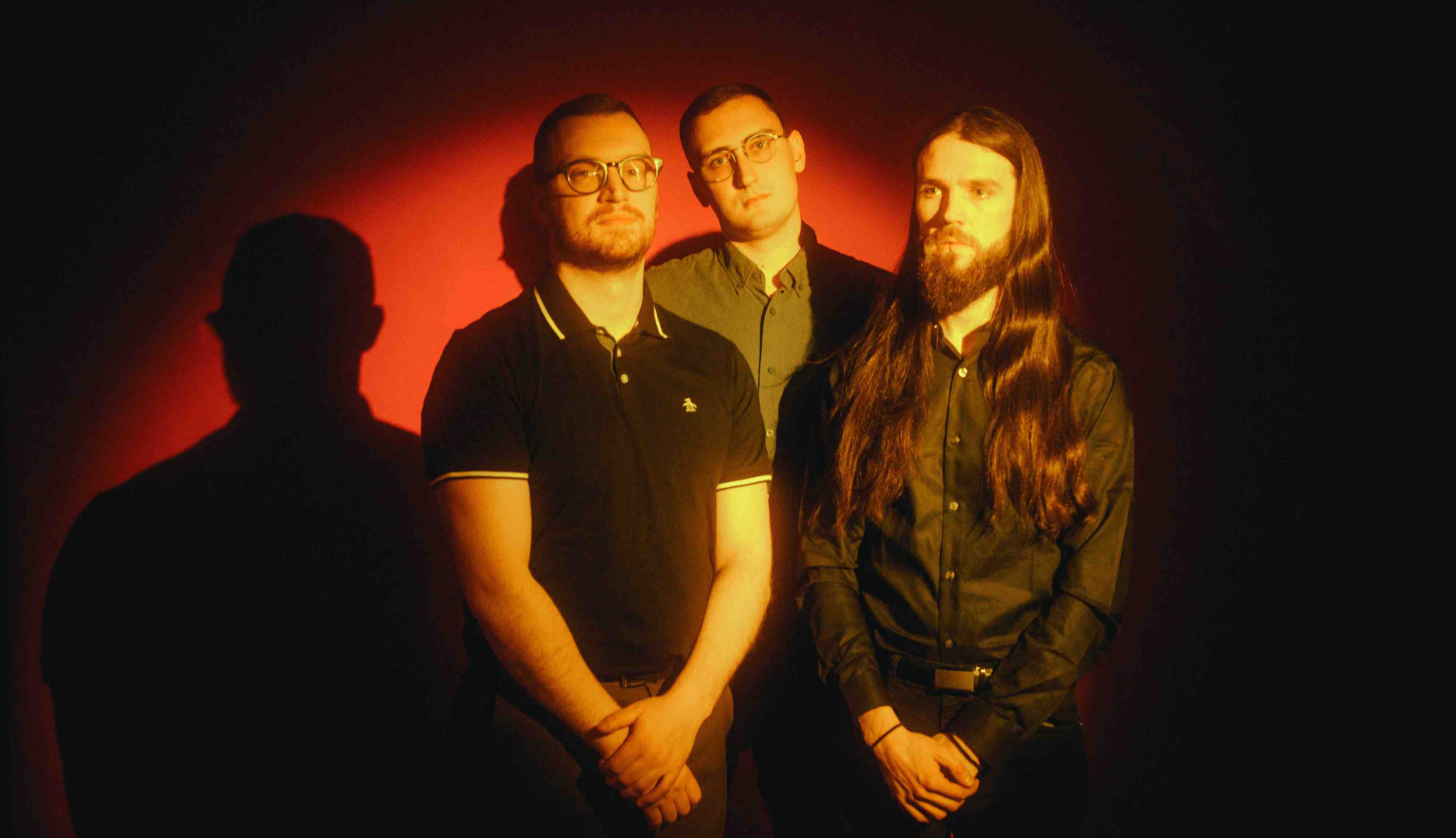Earlier this year, before revealing pre-album singles from their latest collection of songs Wrong Dream, Winnipeg noise-punks Tunic shared a one-off single called “Dull Ache” which introduced something of a new direction for the project (beyond being twice as long as most Tunic songs), opening as it does with a sinister guitar line recalling Portrayal of Guilt’s calm-before-the-Satanic-storm riffs. While “Dull Ache” didn’t materialize on Wrong Dream’s track list when it was revealed, it signified a shift for the band, with many of the moments on the new record delivering on the promise of a deviation from the formula of brief, frantic tracks the trio has been pushing out for a decade.
“Disease,” the record’s latest single, mines the same anxieties of most of Tunic’s discography while leaving more room for David Schellenberg’s condemnation of working life under a capitalist system. “During the pandemic I found myself making a stable income and, since there was no touring, I wasn’t burning it on the road pursuing what I really wanted to do, this band,” he explains. “I started to feel myself drift away from the identity I strived so hard to create. My entire self-worth was tied so strongly to being a touring musician, and if I didn’t have that anymore, then who was I? The short answer is, just another cog in the machine, working 40+ hour weeks. The metaphor is simple. It was cancerous, it overtook my body, my life and sense of self.”
The dysphoria he describes also finds its way into the music, as it escalates dramatically over the course of three minutes from a sparse post-punk track to a pummeling sense of dread. Watch a visual for the song below, and pre-order the album here. Additionally, you can find the band on tour in May at the dates listed here, and read a brief Q&A with Schellenberg about the song and Wrong Dream as a whole below.
What is the footage we’re seeing in the “Disease” video, and what’s its significance in reference to the track?
The video was created and directed by Sara Dresti out of Italy. We worked with her before on our “Rituals” video and thought she’d be great to work with again. I explained the lyrical concept to her and she was very excited to create the video. The footage is found-footage mixed with some of Sara’s personal footage, and describes the specific sensation of working until you feel out of your own body and reducing life to the things that happen between work and sleep.
I like how you describe working within a capitalist system as being mutually exclusive to feeling like you have any sort of identity—how did you feel working 40-hour weeks affected your songwriting?
I felt completely lost. My whole adult life has been about scraping by, saving money, living in punk houses so that I could tour and fund the band. I couldn’t believe that this was “regular life” for most people. Just working, paying bills, buying groceries. As far as it affected my songwriting, I would wake up at 6 a.m., drag myself out of bed, and bring myself to my little basement studio and write music for a couple hours before I had to log on to my day job. I felt completely burnt out after work and had no desire to even look at a guitar. It was the least creative I’ve ever felt, and so the lyrics for the album reflect that rather strongly.
There’s also something powerful about the record’s concept of chasing the “wrong dream”—in your mind, was this idea more related to the personal choices we make, or as a more general condemnation of the hoax-y type of path that’s often laid in front of us?
It’s about both, really. Some of the songs—“Sounds Repeat,” “My Body, My Blood,” “Whispering”—are about the more personal choices we make that determine what avenues we go down in our own lives. Whereas “Disease” and “Empty Husk” are about the capitalistic system as a whole and chasing “the American dream” and the feeling of being suffocated by it as a whole, and fully understanding how it finally feels to be a cog in the wheel.
What are you most looking forward to upon returning to touring?
Playing live is the best feeling in the world—it’s purely cathartic for all of us at this point. Touring is the reason I do everything in my life; it’s the reason I have the job that I do, the gear that I own. It’s about putting on the best-sounding show and being able to leave life behind as much as possible. It’s the best. The only feeling that meets the high of touring is watching people singing the words back at you and being into the show.
The new album ends with a much longer and less frantic song than what we’ve come to expect from Tunic—what inspired you to open up the band’s sound a bit?
I’ve always been a fan of non-heavy/non-frantic music. I grew up listening to a lot of ambient/post-rock and only until this record did I feel confident in my songwriting enough that I could actually write a song that would fit with the Tunic sound I’ve been sculpting for years, but also be a “pretty” song. I was very nervous recording that song as, yes, it is a different type of song for us—but after some reassuring words from a few friends, we kept it and now I’m really excited to show everyone that Tunic isn’t so one-dimensional, sonically.







